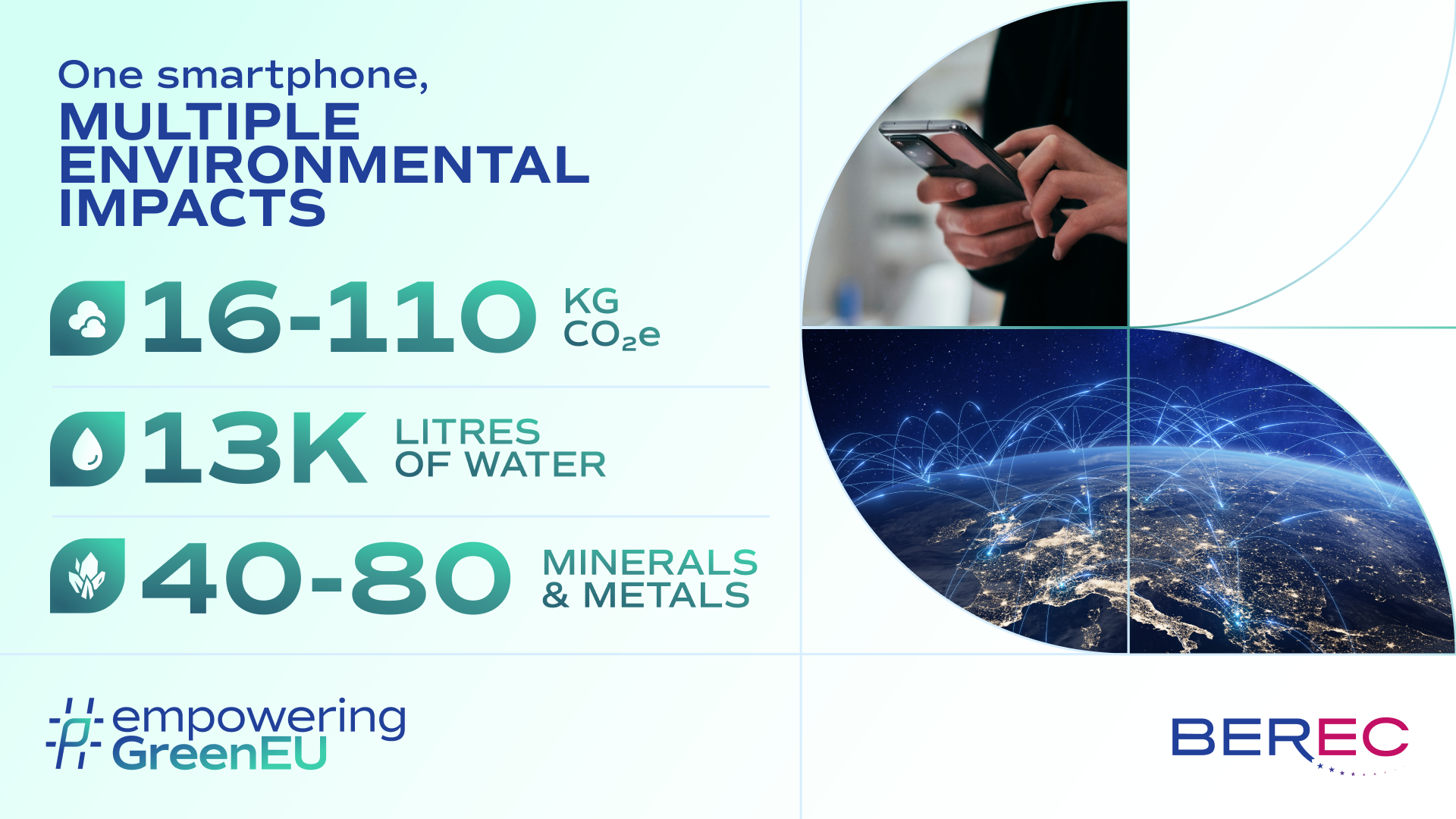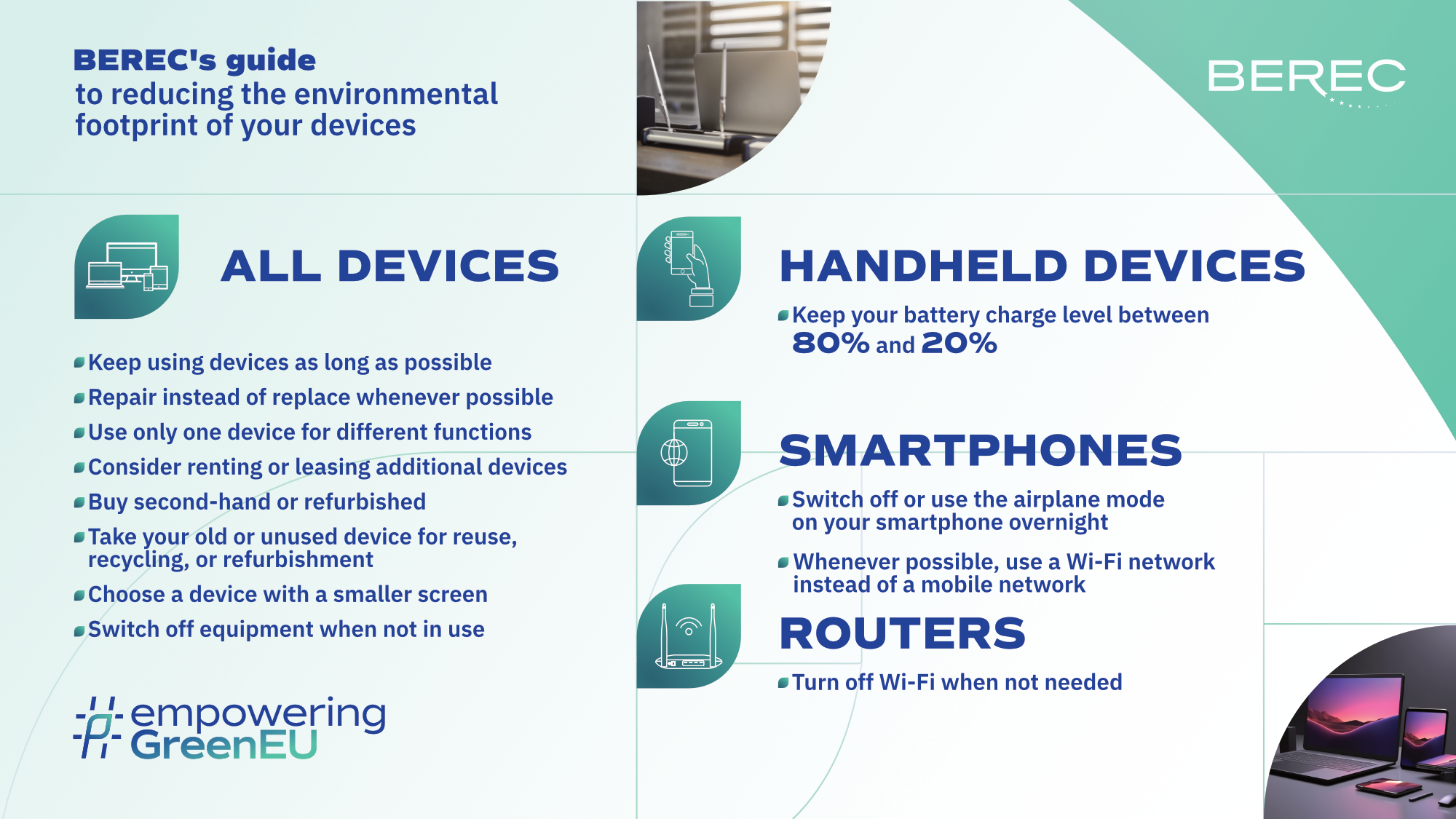BEREC raising awareness of End Users
The green transition stands as a fundamental concern for European citizens who want to play an active role in meeting global environmental targets. According to a recent Eurobarometer survey, 88% of Europeans support the goal of this green transition while 77% of them feel a personal responsibility to act to limit climate change. However, those wishing to actively contribute to this transition often encounter hurdles, primarily in the form of insufficient information regarding the environmental impact of products, as well as a lack of comparability and reliability of such information when available. Additionally, unfair market practices, especially those related to planned obsolescence, pose significant challenges to environmental goals, as assessed by the European Commission.
According to the Body of European Regulators for Electronic Communications (BEREC), raising awareness on environmental issues is a critical tool to empower end users and to achieve sustainability in Information and Communications Technology (ICT). Environmental information on digital products and services could enlighten users’ digital consumption choices. Complementary to effects on the demand side, a data-driven approach of end-users’ empowerment could create positive incentives for digital players to support the deployment of greener digital solutions and limit the risk of greenwashing.
BEREC raised the awareness of environmental impacts through its BEREC Report on ICT sustainability for end-users: Empowering end-users through environmental transparency on digital products, supported by a communication campaign on end users’ digital devices.

The key take-aways of this report can be formulated as follows:
- Environmental data are important to enable end-users to use environmental information in their consumption choices and to promote the most sustainable products on the market, through ‘data-driven regulation’. Different tools can be used for stronger transparency: labels, indexes, public databases, best practices and rankings. It is critical to secure reliable, readable and comparable information for end-users who consider all relevant environmental impacts of ICT products (Green House Gas emissions, energy efficiency, materials consumption, etc.)
-
Information to end users is particularly critical to empower them in the green transition in three areas:
- (a) informing end users about their environmental rights as consumers (for instance: guaranteed conformity, right to repair, protection against greenwashing);
- (b) raising awareness on end users digital services’ environmental footprint and best practices to mitigate this impact;
- (c) promoting the environmentally friendly use of digital devices and expand their lifespan.
- Important steps have been taken on environmental transparency and end user empowerment on the basis of the European Union Green Deal. There are also challenges ahead, especially regarding the implementation of new regulatory disposals and harmonisation.
- A multi-stakeholder approach is needed to tackle the challenges ahead associating industry players, consumer and environmental organisations, the scientific community and public bodies in particular. The growing expertise of electronic communications regulators on the environmental footprint of ICT and their traditional activities on end user empowerment could support existing efforts to better inform consumers on the sustainability of digital devices and services. Some initiatives have been launched by a group of National Regulatory Authorities and further initiatives among BEREC members are expected.
On this basis, a communication campaign of BEREC to raise awareness among end-users on the environmental footprint of their digital devices took place in 2024.
